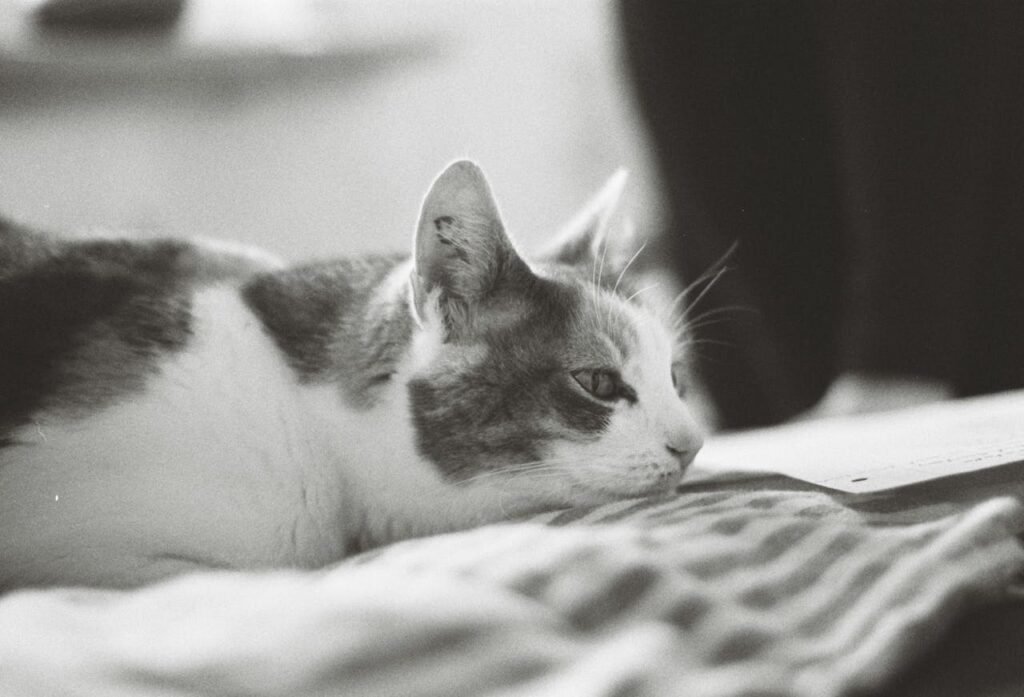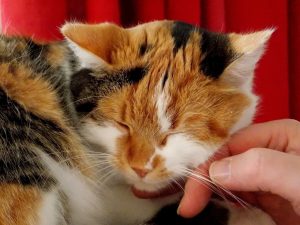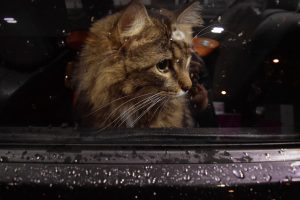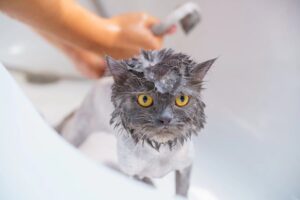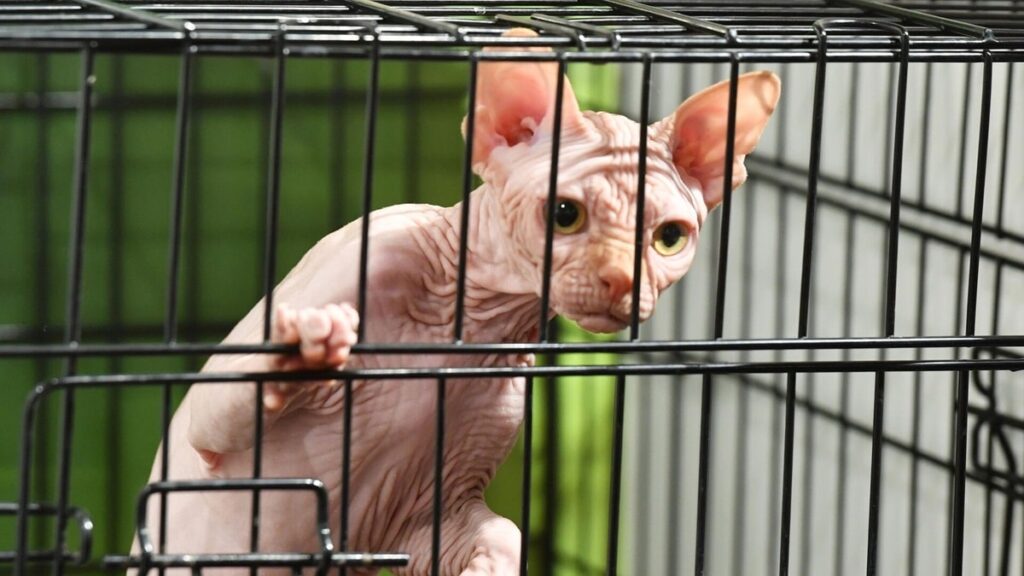When it comes to ensuring the well-being of cats while owners are away, the need for careful planning cannot be overemphasized. Jackson Galaxy, a well-known cat expert, addressed this issue in one of his recent videos, and his findings can help pet owners make good decisions when leaving their pets behind for vacations or even short trips.
Understanding Your Cat’s Needs
Jackson Galaxy emphasizes three key factors that govern a cat’s sense of well-being, which he refers to as the “Three R’s”: Routine, Ritual, and Rhythm. These elements form the foundation of a cat’s life and must be preserved even when their primary caregiver is away.
- Routine: Cats are creatures of habit. They thrive on consistency and predictable schedules.
- Ritual: Rituals are the repeated, familiar actions associated with specific times of the day, like feeding or play sessions.
- Rhythm: This relates to their circadian rhythm, or their daily cycle of activity, rest, and interaction, which aligns with their environment.
Galaxy argues that any disruption to these “Three R’s” can result in a loss of “mojo”—a cat’s sense of territorial confidence and emotional security. Therefore, when planning to leave your cat alone, it’s vital to minimize interruptions to their routine.
The “No-Go” Approaches
In his video, Jackson identifies several strategies that cat owners may consider when they leave home, but he strongly advises against them.
- Leaving food and water for a few days: While some people assume cats can manage with an abundance of food and water, Galaxy explains that this method causes unnecessary stress. It deprives cats of the interaction and environmental stimulation they need, leading to potential behavioral issues.
- Having someone stop by briefly once a day: Asking a neighbor or a friend to pop in for 20 minutes just to feed the cat and clean the litter box is equally problematic. This brief and impersonal interaction disrupts the cats’ territorial confidence and relationship with their environment, leaving them feeling unsettled and abandoned.
- Boarding facilities: Although boarding facilities are often suitable for dogs, cats react poorly to being taken out of their familiar territory. The stress of unfamiliar smells and surroundings can cause anxiety and behavioral problems long after they return home.
The Best Approach: Hiring a Professional Pet Sitter
Galaxy highlights the importance of finding a reliable, professional pet sitter as the best solution for leaving your cat alone. Websites that specialize in connecting pet owners with licensed, insured, and bonded sitters are a good place to start. However, Galaxy advises interviewing potential sitters and introducing them to your pets in advance to gauge their compatibility.
According to Galaxy, an ideal arrangement involves a pet sitter visiting your home twice a day—once in the morning and once in the evening. This approach mirrors the daily routine your cat is accustomed to, maintaining a sense of normalcy in your absence. A pet sitter can provide essential care, including feeding, playtime, and ensuring the cat’s territorial confidence by maintaining their space.
The Optimal Scenario: Overnight Stays
For those seeking the best possible care, Galaxy recommends overnight stays, which he refers to as the “Emerald City” of cat care while you’re away. A sitter staying for 12-hour shifts (e.g., from 7 PM to 7 AM) ensures that your cat’s evening and morning routines are intact. This setup allows for uninterrupted feeding schedules, playtime, and even cuddle sessions, reinforcing the cat’s relationship with the sitter and maintaining their territorial confidence.
Preparing Your Home for Success
Even with a pet sitter, you can take steps to ensure your cat’s environment remains as enriching as possible. Galaxy suggests leaving out toys, particularly self-activated toys or puzzle toys that provide stimulation when the sitter isn’t there. Setting up birdhouses or placing cat trees near windows offers your cat visual entertainment, which can be especially helpful for indoor cats.
He also advises creating a detailed “pet manual” for the sitter, including information on feeding routines, emergency contacts, and any particular quirks your cat may have (like being a door-dasher). This added layer of preparation not only reassures you but also helps the sitter provide consistent care.
Involving Your Cat Before You Leave
Another tip from Galaxy is what he calls “the handoff.” This involves inviting the sitter over before your departure so they can observe your interactions with your cat. If possible, have the sitter participate in meal times or play sessions to allow your cat to familiarize themselves with this new person. Gradually, your cat will associate the sitter with positive experiences, making the transition smoother.
Budgeting for Cat Care
One crucial aspect that often gets overlooked is budgeting for professional cat care. Galaxy stresses that just like planning for travel, hotel stays, and meals during a vacation, hiring a pet sitter should be an essential part of the financial planning process. If a professional sitter is out of your budget, a trusted friend or family member can help—but be sure to clearly communicate the level of care your cat requires, treating it as a serious responsibility.
Traveling with Your Cat
While the video primarily addresses leaving cats at home, Galaxy also acknowledges that some pet owners might want to bring their cats with them. He emphasizes that traveling with a cat is only feasible if the cat has been harness trained, a process that requires patience and dedication. Bringing familiar items like your cat’s bed, favorite toys, and food can help recreate a sense of home in a new environment.
Final Thoughts
Cats are sensitive creatures who depend on consistency in their environment and relationships to feel secure. Whether you’re leaving for a weekend or an extended vacation, it’s important to carefully consider how your absence will affect your feline friend. As Jackson Galaxy emphasizes, by planning ahead, hiring a reliable pet sitter, and maintaining the “Three R’s” as much as possible, you can ensure that your cat remains happy and confident while you’re away.
After all, returning to a calm and content cat, instead of a stressed and anxious one, will make your trip that much more enjoyable.
FAQ: Ensuring Your Cat’s Comfort and Happiness While You’re Away
Start by leaving your cat alone for short periods, gradually increasing the time you’re away. This helps your cat adjust to being alone and reduces separation anxiety. Observe their behavior during these times to make any necessary changes to their environment.
Create a calm, familiar space for your cat by providing access to their favorite sleeping spots, toys, and hiding places. You can also leave an item with your scent, like a worn shirt, to provide comfort while you’re away.
Cats thrive on routine, so it’s essential to keep feeding, playtime, and cuddling schedules as consistent as possible, even in your absence. Make sure your cat sitter follows these routines to help your cat feel secure and reduce anxiety.
Choose a cat sitter your cat already knows, or have the sitter visit a few times before you leave to build rapport. Professional services like The Cat Butler offer experienced cat sitters who understand feline behavior, providing peace of mind while you’re away.
Most cats feel more secure in their own environment, so in-home cat sitting services are preferable to boarding facilities. This allows your cat to stay in familiar surroundings, reducing stress and maintaining their daily routine.
Provide a detailed care guide that includes feeding instructions, favorite toys, hiding spots, and any quirks or behavioral traits. Don’t forget to include your vet’s contact information and any medical instructions for your cat’s health needs.
Yes, if possible, arrange a trial run while you’re still in town. This helps your cat adjust to the sitter and gives you peace of mind by observing how well your cat adapts to the new care routine.
Consider using calming products such as pheromone diffusers, calming collars, or soothing music. These techniques can help reduce anxiety and create a more relaxing environment for your cat. Always consult your vet before introducing any new calming aids.
Yes, pet cameras with two-way audio allow you to check in on your cat and interact with them, providing reassurance for both of you. These cameras can help you monitor your cat’s well-being from afar.
Ensure your cat has access to fresh water and their regular food. For longer trips, consider using an automatic feeder to maintain a consistent schedule, but this should complement the care provided by a sitter, not replace it.
Leave a list of emergency contacts, including your veterinarian and a backup cat sitter. Make sure your sitter knows where to find your cat’s carrier and any important medical records or medications.
Engage your cat with interactive play sessions before you leave and ask your sitter to continue these activities. Mental stimulation and physical exercise will help alleviate boredom and reduce stress.
By familiarizing your cat with your absence, maintaining their routine, securing a trusted sitter, and creating a comforting environment, you can help your cat stay relaxed and happy while you’re away. Every cat is different, so tailor your preparations to your cat’s specific needs and preferences.
Головні відкриття у догляді за улюбленцями 2026 року.
⚠️ We suggest that you read all the opinions on our portal and take note of them at your own discretion. Do not self-medicate! In our articles we collect the latest scientific data and opinions of authoritative experts in the field of health care. But remember: only a doctor can diagnose and treat.
The portal is intended for users over 13 years old. Some materials may not be suitable for children under the age of 16. We do not collect personal data from children under 13 without parental consent.We have a small request. We strive to create quality content about pet care, and we make it available for free to everyone because we believe everyone deserves accurate and useful information.
Advertising revenue only covers a small portion of our costs, and we want to continue to provide content without having to increase advertising. If you have found our content useful, please support us. It only takes a minute, but your support will help us reduce our reliance on advertising and create even more useful articles. Thank you!
